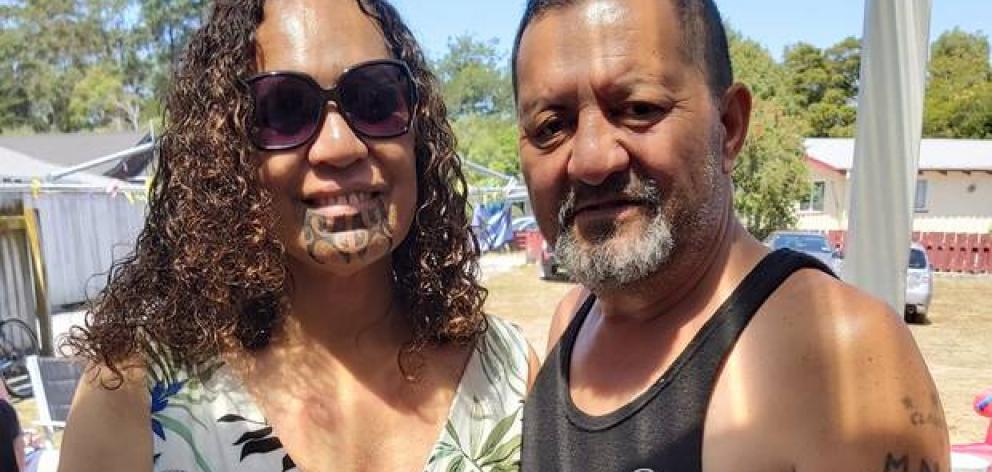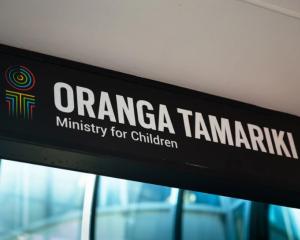
Esther Tinirau is just 55. She also has final stage bowel cancer and has no idea how long she has to live.
Tinirau was 51 when she was diagnosed after 18 months of bleeding. She kept pushing her GP to get more tests but was brushed off, as stool samples came back negative.
"Even on days where I was absolutely sure that there was something majorly wrong with me, I had my doctor just saying, 'It's just haemorrhoids'," she said.
Eventually her doctor referred her for a non-urgent colonoscopy, and she was accepted six months later.
She was diagnosed with stage 3 bowel cancer - it's now progressed to stage 4. She can't work any more due to the pain and starts chemotherapy on Thursday.
Tinirau (Ngāti Ruaka) is one of the 22 per cent of Māori bowel cancer patients whose diagnosis comes in their 50s - compared to 12 per cent of diagnoses for non-Māori.
Bowel Cancer NZ says that worrying statistic adds to inequitable outcomes for Māori - but believes extending a simple screening programme to younger Māori could make things fair.
The cheap, effective test involves the patient takes a small stool sample at home and sends it off to the lab. If a test is positive, the patient is sent for a colonoscopy, where any cancer should be spotted.
The screening is being rolled out through the National Bowel Screening Programme. It is currently offered to those aged 60-74 at 10 DHBs, with the aim of reaching all 20 DHBs by June 2021.
But a shortage of colonoscopists means it's a struggle to get patients who test positive seen quickly and more testing will only add to the backlog.
Bowel Cancer NZ wants the programme urgently ramped up. It's calling for screening to be offered immediately to Māori aged 50-59, and for all New Zealanders in their 50s to be eligible by 2025.
Every year about 3000 Kiwis are diagnosed with bowel cancer, and 1200 die.
Of those, about 360 are diagnosed in their 50s before they are eligible for screening. Bowel Cancer NZ says 120 of them will die, and claims the Government is sending them to an "unnecessarily early grave".
Bowel Cancer NZ spokeswoman and University of Otago Professor Sarah Derrett said in a statement the Waitemata DHB pilot of the screening programme had covered those aged 50-59.
But the Ministry of Health had justified not continuing to screen this group because DHBs did not have enough workplace capacity for colonoscopies and other procedures.
"During the six years of the Waitemata pilot the ministry clearly indicated they were committed to building up that workforce capacity. It's clear that was a hollow promise," said Derrett, an expert in preventive medicine.
"The National Bowel Cancer Screening Review released in 2018 showed that initiatives to address the workforce shortfall have repeatedly stalled. That represents six years of inaction while hundreds of New Zealanders in this age group were effectively given a death sentence."
She told the Herald while BCNZ fully supported the screening programme right now it was also making things more unfair for Māori.
The Ministry of Health's new Cancer Action Plan says while the screening programme is positive for both Māori and non-Māori, overall gains would be better for non-Māori.
"The highest priority recommendation emerging from a hui with Māori health experts was to extend the age range for screening for Māori to 50–74 years of age. The Ministry is currently considering this," the plan says.
The ministry's deputy director of general population health and prevention, Deborah Woodley, told the Herald it's focusing on fully rolling out the screening programme to cut "overall mortality" from bowel cancer by June 2021.
No decision had been made on whether to start screening younger for Māori and Pacific people, Woodley said.
Since July 2017 the programme had detected cancers in more than 520 people and removed thousands of pre-cancerous polyps.
"It is important to get the foundation right - to establish the programme within system capacity first - before parameters are reviewed and any changes considered, which could increase demand, particularly on colonoscopy services."
"Ministry of Health data shows the incidence of bowel cancer is about the same for Māori and non-Māori," she said.
"However we acknowledge there are fewer gains from bowel screening for Māori and Pacific peoples because a higher proportion of cancers are diagnosed before they turn 60."
The ministry had been working to increase the colonoscopy workforce since 2012, with colonoscopy service provision up by 45 per cent in five years.
But demand had also gone up nearly 30 per cent. More action was being taken to address "persisting gaps in the workforce" including work to increase the number of registrars and nurse endoscopists, Woodley said.
While it's too late for Esther Tinirau, the former Te Reo Māori educator believes rolling out the bowel cancer screening programme to younger Māori could save others.
"We know Māori are presenting too late ... and we're in the advanced stages," she said. A simple at-home test would improve access for Māori and save lives.
"I want to contribute to the voice to Māori to get yourselves checked. Listen to your body. But much more so to the Government - break down our barriers to access we need in order to stop being afflicted by diseases like this."












